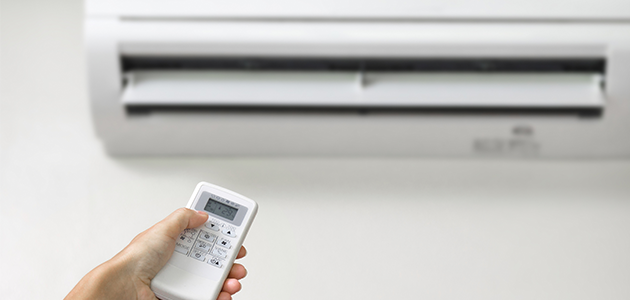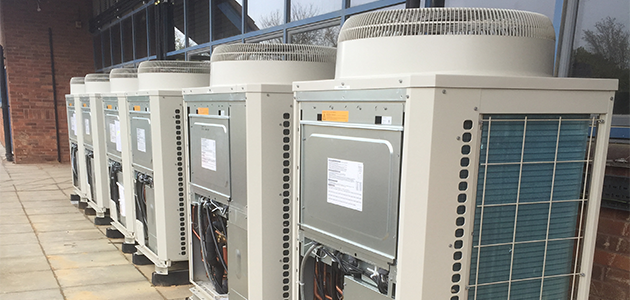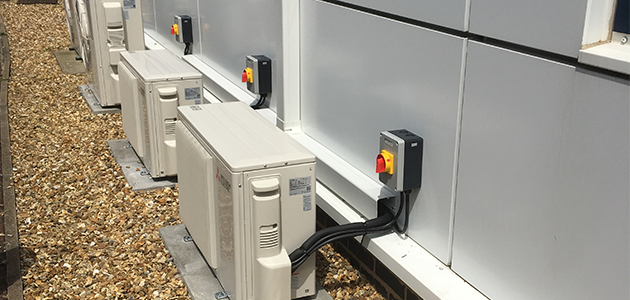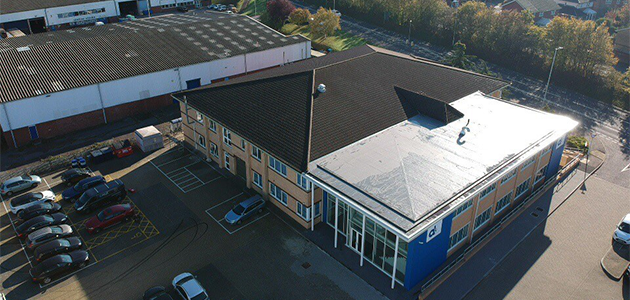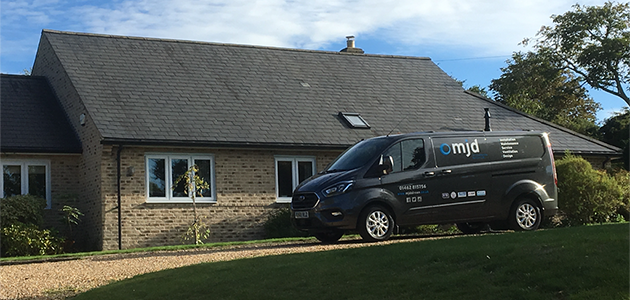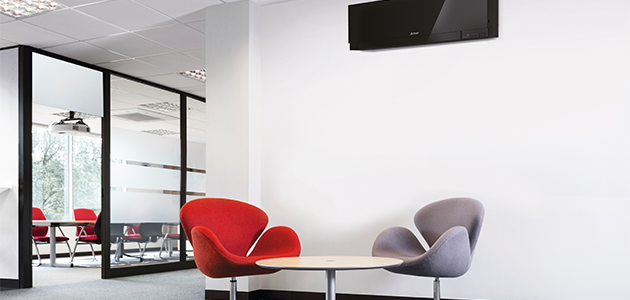Transforming the very fabric
27th November 2018
In July 2018, The Guardian newspaper commented on the long-term effects of increasing temperatures, saying: “It is underappreciated that climate change will transform the very fabric of the experience of living in the UK.”
As we move forward into a new type of UK weather, building services will be at the forefront of ensuring that we do so safely and responsibly.
Responsibility to innovate
We have established that air conditioning plays a key role in commercial buildings and those involved in the decisions of which systems install have a responsibility to ensure their choice represents the most energy efficient one possible.
However, manufacturers also have a duty to ensure that the solutions on offer, are as sustainable and efficiently produced as possible.
This could be represented by a hybrid system where traditional refrigeration-based systems work with water as a delivery medium, to lower the overall environmental impact of the system or selecting R32 as a refrigerant which has a lower global warming potential to many of its alternatives.
The news seems full of reports about the Internet of Things (IoT) at the moment and how this virtual network is going to revolutionise the way our devices and appliances connect and communicate.
Whilst the reports focus on how your future fridge will be able to order food when you’re running low, or how smart controls allow you to adjust your home heating from the office, this got me thinking about how far we have come in such a short space of time.
If we look at the differences in communication between 1900 and 2000, and then at how much has changed in the last 17 years, it is clear to see that cloud-based controls are having an effect on modern life and this ‘revolution’ is likely to have even more impact in the future.
Today things have changed significantly with the rise of smartphones and internet-connected devices radically transforming the way we communicate.
There is now an app for just about anything, so you can access all of the latest, instant news feeds, on tailored subjects to suit you and your lifestyle.
Your smartphone is of course also your telephone, which means you can reach anyone in the world, by voice, text, image and video, from almost anywhere in the world.
And these devices and the internet have seriously changed the way we shop, with internet-based retailers on the rise.
Taking back control
Many building operators are simply using these controls as a timer, which is fine for some, particularly in smaller buildings with a constant number of employees. However, the range of functions goes far beyond this.
Once installed, understanding the wide range of controls available with your system can also help reduce wasted energy. Many controls give companies the opportunity to monitor and control their air conditioning across a room, building or an entire network from a single PC or device.
Develop a control strategy to suit your business
For example, if a meeting room is empty, modern devices have the ability to automatically recognise this and lower/switch off the air conditioning to conserve energy. They can also be used to monitor energy usage, spotting trends and anomalies to make changes to help further reduce energy costs.
In terms of building controls, things have also changed but the adoption has not yet been quite so widespread.
Today, it is possible to control your home heating from your phone using apps such as our own MELCloud system.
This will also allow a building services engineer or facilities manager to have advanced control over a building’s entire system of heating, ventilation and air conditioning remotely, either for diagnostics or analytical reporting. They can also be used to control a whole network of buildings across a campus, across a country or even across the world.
Things have certainly moved rapidly in just 17 years so where do we see this all going next?
I think it’s difficult to be completely certain about how all of our devices are going to connect using cloud-based computing. However, I do think it is clear that controls have become much easier to access, and that the manufacturers are also finding more intelligent ways to report and analyse the data available.
So, whilst I do think we are a way off the totally automated home, which has already cooked dinner, poured a drink, run a bath and ordered your weekly shop – before you get home, it is now possible to control, monitor and automate a building services using the ‘cloud’ so that they deliver comfortable environments for occupants in the most energy efficient ways possible.
Our Services
 Working With You
Working With You
 Bespoke Solutions
Bespoke Solutions
 Superior Service
Superior Service
 Quality Guarantee
Quality Guarantee
Contact us
FAQs
MJD receive a number of frequently asked questions about the services we offer. This FAQS section puts all of those questions into one place, providing the necessary air conditioning facts and figures. If you can’t find the answer you are looking for then please feel free to contact us.
- What is an air conditioning system used for?
An air conditioning system is designed to provide conditioned air throughout a room or building. Modern equipment uses return air filters to remove particulates from the air. Air conditioning systems will improve air quality and provide a comfortable environment for the occupants within the conditioned space.
- Do air conditioning units provide heating?
Modern heat pump units supplied by the leading manufacturer’s provide a very economical form of heating. Larger systems are also capable of providing simultaneous heating and cooling, giving a wide flexibility to any modern business or building.
- Why do MJD Air Conditioning Services supply products from different manufacturer’s?
MJD will only purchase equipment from leading manufacturer’s, this enables us to provide our customers with a wide and comprehensive choices for use across a wide range of air conditioning and heating applications. Our leading manufacturers will also provide us with warranties ranging from 3 years to 7 years. Factory visits have been made by MJD in the past to witness our suppliers manufacturing and piecing together air conditioning equipment that we will be purchasing and installing in the near future.
- Is air conditioning expensive to run?
Modern air conditioning systems are very economical to run. All systems are now fitted with variable speed inverter compressors, which will increase or decrease their speed and output according to the room or building demand. MJD can supply accurate running costs when we design a system for any room or building.
- Is it necessary to obtain planning permission before having air conditioning installed?
Before any air conditioning is installed MJD would advise that you contact your local authorities or planning department and discuss the proposals with the relevant department.
- Will MJD repair any air conditioning system?
MJD will maintain and repair any air conditioning systems manufactured by most leading suppliers. We would attend your site and access the system and provide a full report with our recommendations. If spares are available a quotation would be provided for the repair. If spares are unavailable we would offer you a competitive quotation to replace the system.
- Do you provide warranties on all equipment that you install?
Our planned maintenance contracts will satisfy the necessary requirements of all of our major manufacturer’s warranties. It is important to understand that manufacturers warranties are only valid if the equipment has been used and maintained in accordance with their specifications and recommendations.
- Which Areas do you cover?
MJD will cover Hertfordshire, Bedfordshire, Buckinghamshire, London and Nationwide when required.

